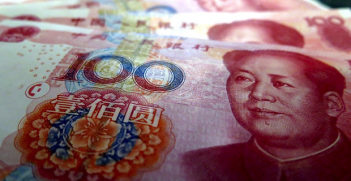A Small Country Trying To Go Big, A Big Union Trying Not To Go Small

The current government party of Hungary, Fidesz, is well known for its populist, anti-EU rhetoric. The upcoming elections will tell us how soon and how much the European Union is at risk of fracture.
Hungary is a country with a long and complicated history, often perceived as unwillingly at the mercy of big European powers. Hungary is a geographically small and landlocked country in Central and Eastern Europe. Many do not know it, but the official name of the region is not “Eastern Europe” but rather “Central and Eastern Europe.” This frequent name mistake is representative and can tell us something about the relevance of the upcoming elections in Hungary as well.
While “the US-allied countries” tend to refer to that region of the world as Eastern Europe, those who live there refer to themselves as Central and Eastern European. In other words, the West tends to divide Europe into two sides: a pro-US side, Western Europe, and a former communist bloc, or Eastern Europe. However, in the former Soviet bloc, people prefer to identify themselves in a way that ties back to the empires and political entities that existed before the Soviet Union and that are part of a bigger continental history. Hungary is an illustrative example of this. The capital, the architecture, and the cultural identity of the people often nod to the former Austrian-Hungarian Empire. In Hungary, there is a sense that those were the last “old glorious days” for Hungary, the last days of being a big and powerful country taken seriously in the European power game.
Since then, Hungarian history has been perceived by Hungarians as a continuous descent in three main acts. In the first act, Hungary loses almost three-quarters of its territories during the infamous 1920 Trianon Treaty as the loser of the First World War. In the second act, Hungary is oppressed by the communist regime, but it fights back and gets its independence. In the third and final act, Hungary joins the European Union to get as far as possible from its Soviet heritage and economically converge with its Western cousins. However, this plan fails miserably. Twenty years later, there is still a massive difference between the two sides of Europe and no significant sign of convergence.
The common leitmotiv in this self-representation is that Hungary has a sense of delusion toward promising allies. Hungary is supposedly being deceived by the European Union in the same way it was deceived by other European nations during the Trianon Treaty and by Russia during communism. In all three cases, the big countries had a tendency to oppress or downplay Hungary for their own interests.
In this context, the current governing party, the Fidesz party, politically reframed these ideas by embodying three main concepts. First, that the same way Hungary fought Russian imperialism, it will now fight the European Union imperialism. This is a debatable reframing of the problem of late-stage capitalism and lack of convergence in a Hungarian sauce. Even if the tone and some of the concepts are strongly manipulated, its core idea has some elements of truth that go hand in hand with the populism rhetoric of the party.
The second political pillar of the Fidesz party is that Hungary deserves to be taken seriously as a geographically small but historically big country rather than be constantly mistreated by other European powers. This also goes hand in hand with populist rhetoric, and it is why the country intermittently winked at Russia and China in an attempt to bother the European Union institutions rightly concerned with breaches of the rule of law and other fundamental aspects of democracy in Hungary in the name of this principle.
The third political pillar of the Fidesz rhetoric revolves around the importance of the family and traditional values. This also resonates well with Hungarian culture and populism rhetoric, yet it is less significant to understand why the potential victory of the Fidesz party in the upcoming Hungarian governmental elections is relevant for the whole of Europe.
If we look at the first two pillars, the upcoming governmental election on 3 April, where the Fidesz government is very likely to win, again is potentially explosive. The main contestants in the elections are the Fidesz party on one side, and a coalition of left parties on the other side. It is important to notice that in most post-Soviet countries, most left-wing parties contain a surprising amount of the same representatives of the former communist party. Even when this is not the case, people often doubt their legitimacy and ability to govern such countries due to their recent past. In the case of Hungary, such a past goes right up to 2010, when the left coalition was replaced by Fidez, leaving behind a legacy of IMF loans and corruption scandals.
In this context, many Hungarians are unsure of what to vote for, and the Fidesz party is very likely to win. Even if many Hungarians in fact do not particularly like the Fidesz party, they still fundamentally doubt the ability and the stability of the opposing coalition. Despite this, no matter the outcome, the three main ideas represented by the Fidesz party are not going anywhere. They are still going to be part of the common understanding of history in Hungary. The only difference in the outcome will represent how fiercely anti-European Union rhetoric is going to be represented.
In case of another win of the Fidesz party, this is what is probably going to happen. The recent series of Hungarian vetoes to the European budget and the recovery fund is just an example of this. In a world where Hungary seems to diverge more and more from the rest of Europe due to dissatisfaction, and the European Union seem unable and unwilling to solve the problem, a further split of the European Union seems closer and closer.
The upcoming Hungarian elections are therefore especially relevant because they are a good proxy to know how soon and how much the European Union is at risk. Is it now or is it in a future far enough to give the European Union one last chance to redeem and improve itself? Only the results of these upcoming elections will let us know.
Elena Cossu is a researcher focused on policy evaluation. She previously worked on understanding the rise of populism in Central and Eastern Europe with the European Commission MSCA FATIGUE project, and now she works as an evaluation researcher in the Policy Research Centre of the National Centre for Social Research in the UK. She is also a PhD candidate in economics at Corvinus University.
This article is published under a Creative Commons License and may be republished with attribution.





